- Home
- Jack London
The Faith of Men Page 2
The Faith of Men Read online
Page 2
“That was the only time he penned me,-three days of it,-but after that the hippodrome never stopped. Round, and round, and round, like a six days’ go-as-I-please, for he never pleased. My clothes went to rags and tatters, but I never stopped to mend, till at last I ran naked as a son of earth, with nothing but the old hand-axe in one hand and a cobble in the other. In fact, I never stopped, save for peeps of sleep in the crannies and ledges of the cliffs. As for the bull, he got perceptibly thinner and thinner-must have lost several tons at least-and as nervous as a schoolmarm on the wrong side of matrimony. When I’d come up with him and yell, or lain him with a rock at long range, he’d jump like a skittish colt and tremble all over. Then he’d pull out on the run, tail and trunk waving stiff, head over one shoulder and wicked eyes blazing, and the way he’d swear at me was something dreadful. A most immoral beast he was, a murderer, and a blasphemer.
“But towards the end he quit all this, and fell to whimpering and crying like a baby. His spirit broke and he became a quivering jelly-mountain of misery. He’d get attacks of palpitation of the heart, and stagger around like a drunken man, and fall down and bark his shins. And then he’d cry, but always on the run. O man, the gods themselves would have wept with him, and you yourself or any other man. It was pitiful, and there was so I much of it, but I only hardened my heart and hit up the pace. At last I wore him clean out, and he lay down, broken-winded, broken-hearted, hungry, and thirsty. When I found he wouldn’t budge, I hamstrung him, and spent the better part of the day wading into him with the hand-axe, he a-sniffing and sobbing till I worked in far enough to shut him off. Thirty feet long he was, and twenty high, and a man could sling a hammock between his tusks and sleep comfortably. Barring the fact that I had run most of the juices out of him, he was fair eating, and his four feet, alone, roasted whole, would have lasted a man a twelvemonth. I spent the winter there myself.”
“And where is this valley?” I asked
He waved his hand in the direction of the north-east, and said: “Your tobacco is very good. I carry a fair share of it in my pouch, but I shall carry the recollection of it until I die. In token of my appreciation, and in return for the moccasins on your own feet, I will present to you these muclucs. They commemorate Klooch and the seven blind little beggars. They are also souvenirs of an unparalleled event in history, namely, the destruction of the oldest breed of animal on earth, and the youngest. And their chief virtue lies in that they will never wear out.”
Having effected the exchange, he knocked the ashes from his pipe, gripped my hand good-night, and wandered off through the snow. Concerning this tale, for which I have already disclaimed responsibility, I would recommend those of little faith to make a visit to the Smithsonian Institute. If they bring the requisite credentials and do not come in vacation time, they will undoubtedly gain an audience with Professor Dolvidson. The muclucs are in his possession, and he will verify, not the manner in which they were obtained, but the material of which they are composed. When he states that they are made from the skin of the mammoth, the scientific world accepts his verdict. What more would you have?
A HYPERBOREAN BREW
[The story of a scheming white man among the strange people who live on the rim of the Arctic sea]
Thomas Stevens’s veracity may have been indeterminate as x, and his imagination the imagination of ordinary men increased to the nth power, but this, at least, must be said: never did he deliver himself of word nor deed that could be branded as a lie outright… He may have played with probability, and verged on the extremest edge of possibility, but in his tales the machinery never creaked. That he knew the Northland like a book, not a soul can deny. That he was a great traveller, and had set foot on countless unknown trails, many evidences affirm. Outside of my own personal knowledge, I knew men that had met him everywhere, but principally on the confines of Nowhere. There was Johnson, the ex-Hudson Bay Company factor, who had housed him in a Labrador factory until his dogs rested up a bit, and he was able to strike out again. There was McMahon, agent for the Alaska Commercial Company, who had run across him in Dutch Harbour, and later on, among the outlying islands of the Aleutian group. It was indisputable that he had guided one of the earlier United States surveys, and history states positively that in a similar capacity he served the Western Union when it attempted to put through its trans-Alaskan and Siberian telegraph to Europe. Further, there was Joe Lamson, the whaling captain, who, when ice-bound off the mouth of the Mackenzie, had had him come aboard after tobacco. This last touch proves Thomas Stevens’s identity conclusively. His quest for tobacco was perennial and untiring. Ere we became fairly acquainted, I learned to greet him with one hand, and pass the pouch with the other. But the night I met him in John O’Brien’s Dawson saloon, his head was wreathed in a nimbus of fifty-cent cigar smoke, and instead of my pouch he demanded my sack. We were standing by a faro table, and forthwith he tossed it upon the “high card.” “Fifty,” he said, and the game-keeper nodded. The “high card” turned, and he handed back my sack, called for a “tab,” and drew me over to the scales, where the weigher nonchalantly cashed him out fifty dollars in dust.
“And now we’ll drink,” he said; and later, at the bar, when he lowered his glass: “Reminds me of a little brew I had up Tattarat way. No, you have no knowledge of the place, nor is it down on the charts. But it’s up by the rim of the Arctic Sea, not so many hundred miles from the American line, and all of half a thousand God-forsaken souls live there, giving and taking in marriage, and starving and dying in-between-whiles. Explorers have overlooked them, and you will not find them in the census of 1890. A whale-ship was pinched there once, but the men, who had made shore over the ice, pulled out for the south and were never heard of.
“But it was a great brew we had, Moosu and I,” he added a moment later, with just the slightest suspicion of a sigh.
I knew there were big deeds and wild doings behind that sigh, so I haled him into a corner, between a roulette outfit and a poker layout, and waited for his tongue to thaw.
“Had one objection to Moosu,” he began, cocking his head meditatively-“one objection, and only one. He was an Indian from over on the edge of the Chippewyan country, but the trouble was, he’d picked up a smattering of the Scriptures. Been campmate a season with a renegade French Canadian who’d studied for the church. Moosu’d never seen applied Christianity, and his head was crammed with miracles, battles, and dispensations, and what not he didn’t understand. Otherwise he was a good sort, and a handy man on trail or over a fire.
“We’d had a hard time together and were badly knocked out when we plumped upon Tattarat. Lost outfits and dogs crossing a divide in a fall blizzard, and our bellies clove to our backs and our clothes were in rags when we crawled into the village. They weren’t much surprised at seeing us-because of the whalemen-and gave us the meanest shack in the village to live in, and the worst of their leavings to live on. What struck me at the time as strange was that they left us strictly alone. But Moosu explained it.
“‘Shaman sicktumtum,’ he said, meaning the shaman, or medicine man, was jealous, and had advised the people to have nothing to do with us. From the little he’d seen of the whalemen, he’d learned that mine was a stronger race, and a wiser; so he’d only behaved as shamans have always behaved the world over. And before I get done, you’ll see how near right he was.
“‘These people have a law,’ said Mosu: ‘whoso eats of meat must hunt. We be awkward, you and I, O master, in the weapons of this country; nor can we string bows nor fling spears after the manner approved. Wherefore the shaman and Tummasook, who is chief, have put their heads together, and it has been decreed that we work with the women and children in dragging in the meat and tending the wants of the hunters.’
“‘And this is very wrong,’ I made to answer; ‘for we be better men, Moosu, than these people who walk in darkness. Further, we should rest and grow strong, for the way south is long, and on that trail the weak cannot prosper.’”
“But I was stunned by the word he brought of the tobacco, and made no answer.
“And Moosu, what of his own desire, broke silence: ‘And there be Tukeliketa, daughter of a big hunter and wealthy man. A likely girl. Indeed, a very nice girl.’
“I figured hard during the night while Moosu snored, for I could not bear the thought of the tobacco so near which I could not smoke. True, as he had said, we had nothing. But the way became clear to me, and in the morning I said to him: ‘Go thou cunningly abroad, after thy fashion, and procure me some sort of bone, crooked like a gooseneck, and hollow. Also, walk humbly, but have eyes awake to the lay of pots and pans and cooking contrivances. And remember, mine is the white man’s wisdom, and do what I have bid you, with sureness and despatch.’
“While he was away I placed the whale-oil cooking lamp in the middle of the igloo, and moved the mangy sleeping furs back that I might have room. Then I took apart his gun and put the barrel by handy, and afterwards braided many wicks from the cotton that the women gather wild in the summer. When he came back, it was with the bone I had commanded, and with news that in the igloo of Tummasook there was a five-gallon kerosene can and a big copper kettle. So I said he had done well and we would tarry through the day. And when midnight was near I made harangue to him.
“‘This chief, this Tummasook, hath a copper kettle, likewise a kerosene can.’ I put a rock, smooth and wave-washed, in Moosu’s hand. ‘The camp is hushed and the stars are winking. Go thou, creep into the chief’s igloo softly, and smite him thus upon the belly, and hard. And let the meat and good grub of the days to come put strength into thine arm. There will be uproar and outcry, and the village will come hot afoot. But be thou unafraid. Veil thy movements and lose thy form in the obscurity of the night and the confusion of men. And when the woman Ipsukuk is anigh thee,-she who smeareth her face with molasses,-do thou smite her likewise, and whosoever else that possesseth flour and cometh to thy hand. Then do thou lift thy voice in pain and double up with clasped hands, and make outcry in token that thou, too, hast felt the visitation of the night. And in this way shall we achieve honour and great possessions, and the caddy of “Star” and the prime smoking, and thy Tukeliketa, who is a likely maiden.’
“When he had departed on this errand, I bided patiently in the shack, and the tobacco seemed very near. Then there was a cry of affright in the night, that became an uproar and assailed the sky. I seized the ‘pain-killer’ and ran forth. There was much noise, and a wailing among the women, and fear sat heavily on all. Tummasook and the woman Ipsukuk rolled on the ground in pain, and with them there were divers others, also Moosu. I thrust aside those that cluttered the way of my feet, and put the mouth of the bottle to Moosu’s lips. And straightway he became well and ceased his howling. Whereat there was a great clamour for the bottle from the others so stricken. But I made harangue, and ere they tasted and were made well I had mulcted Tummasook of his copper kettle and kerosene can, and the woman Ipsukuk of her sugar and molasses, and the other sick ones of goodly measures of flour. The shaman glowered wickedly at the people around my knees, though he poorly concealed the wonder that lay beneath. But I held my head high, and Moosu groaned beneath the loot as he followed my heels to the shack.
“There I set to work. In Tummasook’s copper kettle I mixed three quarts of wheat flour with five of molasses, and to this I added of water twenty quarts. Then I placed the kettle near the lamp, that it might sour in the warmth and grow strong. Moosu understood, and said my wisdom passed understanding and was greater than Solomon’s, who he had heard was a wise man of old time. The kerosene can I set over the lamp, and to its nose I affixed a snout, and into the snout the bone that was like a gooseneck. I sent Moosu without to pound ice, while I connected the barrel of his gun with the gooseneck, and midway on the barrel I piled the ice he had pounded. And at the far end of the gun-barrel, beyond the pan of ice, I placed a small iron pot. When the brew was strong enough (and it was two days ere it could stand on its own legs), I filled the kerosene can with it, and lighted the wicks I had braided.
“Now that all was ready, I spoke to Moosu. ‘Go forth,’ I said, ‘to the chief men of the village, and give them greeting, and bid them come into my igloo and sleep the night away with me and the gods.’
“The brew was singing merrily when they began shoving aside the skin flap and crawling in, and I was heaping cracked ice on the gun-barrel. Out of the priming hole at the far end, drip, drip, drip into the iron pot fell the liquor-hooch, you know. But they’d never seen the like, and giggled nervously when I made harangue about its virtues. As I talked I noted the jealousy in the shaman’s eye, so when I had done, I placed him side by side with Tummasook and the woman Ipsukuk. Then I gave them to drink, and their eyes watered and their stomachs warmed, till from being afraid they reached greedily for more; and when I had them well started, I turned to the others. Tummasook made a brag about how he had once killed a polar bear, and in the vigour of his pantomime nearly slew his mother’s brother. But nobody heeded. The woman Ipsukuk fell to weeping for a son lost long years agone in the ice, and the shaman made incantation and prophecy. So it went, and before morning they were all on the floor, sleeping soundly with the gods.
“The story tells itself, does it not? The news of the magic potion spread. It was too marvellous for utterance. Tongues could tell but a tithe of the miracles it performed. It eased pain, gave surcease to sorrow, brought back old memories, dead faces, and forgotten dreams. It was a fire that ate through all the blood, and, burning, burned not. It stoutened the heart, stiffened the back, and made men more than men. It revealed the future, and gave visions and prophecy. It brimmed with wisdom and unfolded secrets. There was no end of the things it could do, and soon there was a clamouring on all hands to sleep with the gods. They brought their warmest furs, their strongest dogs, their best meats; but I sold the hooch with discretion, and only those were favoured that brought flour and molasses and sugar. And such stores poured in that I set Moosu to build a cache to hold them, for there was soon no space in the igloo. Ere three days had passed Tummasook had gone bankrupt. The shaman, who was never more than half drunk after the first night, watched me closely and hung on for the better part of the week. But before ten days were gone, even the woman Ipsukuk exhausted her provisions, and went home weak and tottery.
“But Moosu complained. ‘O master,’ he said, ‘we have laid by great wealth in molasses and sugar and flour, but our shack is yet mean, our clothes thin, and our sleeping furs mangy. There is a call of the belly for meat the stench of which offends not the stars, and for tea such as Tummasook guzzles, and there is a great yearning for the tobacco of Neewak, who is shaman and who plans to destroy us. I have flour until I am sick, and sugar and molasses without stint, yet is the heart of Moosu sore and his bed empty.’
“‘Peace!’ I answered, ‘thou art weak of understanding and a fool. Walk softly and wait, and we will grasp it all. But grasp now, and we grasp little, and in the end it will be nothing. Th
ou art a child in the way of the white man’s wisdom. Hold thy tongue and watch, and I will show you the way my brothers do overseas, and, so doing, gather to themselves the riches of the earth. It is what is called “business,” and what dost thou know about business?’
“But the next day he came in breathless. ‘O master, a strange thing happeneth in the igloo of Neewak, the shaman; wherefore we are lost, and we have neither worn the warm furs nor tasted the good tobacco, what of your madness for the molasses and flour. Go thou and witness whilst I watch by the brew.’
“So I went to the igloo of Neewak. And behold, he had made his own still, fashioned cunningly after mine. And as he beheld me he could ill conceal his triumph. For he was a man of parts, and his sleep with the gods when in my igloo had not been sound.
“But I was not disturbed, for I knew what I knew, and when I returned to my own igloo, I descanted to Moosu, and said: ‘Happily the property right obtains amongst this people, who otherwise have been blessed with but few of the institutions of men. And because of this respect for property shall you and I wax fat, and, further, we shall introduce amongst them new institutions that other peoples have worked out through great travail and suffering.’
“But Moosu understood dimly, till the shaman came forth, with eyes flashing and a threatening note in his voice, and demanded to trade with me. ‘For look you,’ he cried, ‘there be of flour and molasses none in all the village. The like have you gathered with a shrewd hand from my people, who have slept with your gods and who now have nothing save large heads, and weak knees, and a thirst for cold water that they cannot quench. This is not good, and my voice has power among them; so it were well that we trade, you and I, even as you have traded with them, for molasses and flour.’

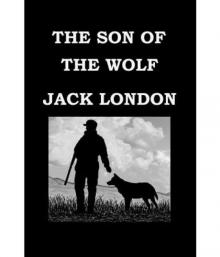 The Son of the Wolf
The Son of the Wolf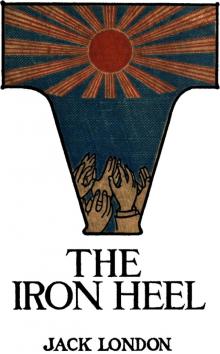 The Iron Heel
The Iron Heel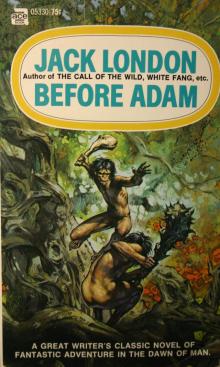 Before Adam
Before Adam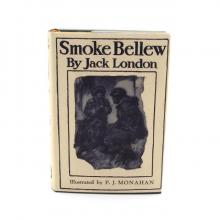 Smoke Bellew
Smoke Bellew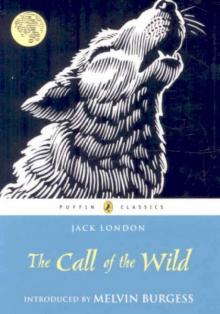 The Call of the Wild
The Call of the Wild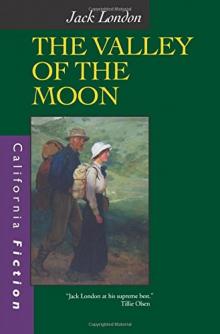 The Valley of the Moon Jack London
The Valley of the Moon Jack London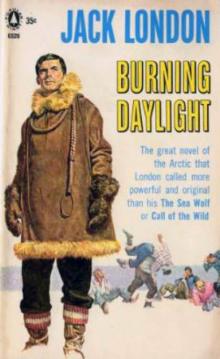 Burning Daylight
Burning Daylight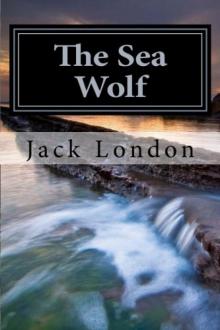 The Sea Wolf
The Sea Wolf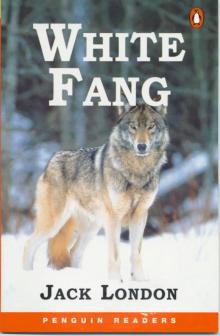 White Fang
White Fang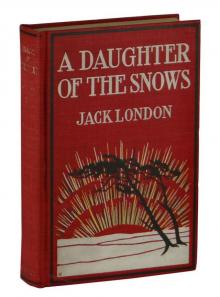 A Daughter of the Snows
A Daughter of the Snows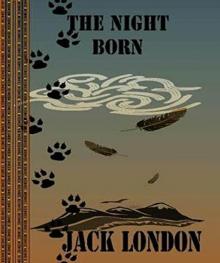 The Night-Born
The Night-Born A Son Of The Sun
A Son Of The Sun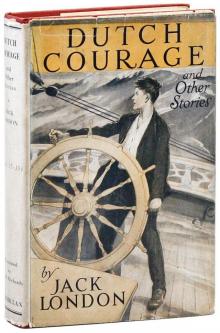 Dutch Courage and Other Stories
Dutch Courage and Other Stories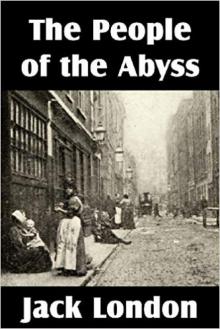 The People of the Abyss
The People of the Abyss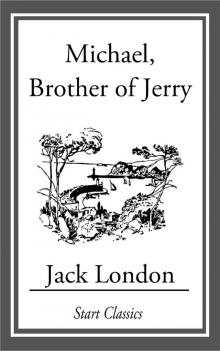 Michael, Brother of Jerry
Michael, Brother of Jerry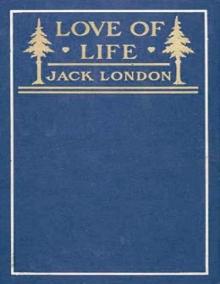 Love of Life, and Other Stories
Love of Life, and Other Stories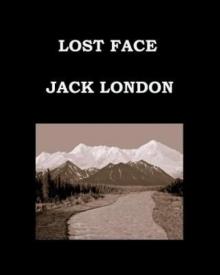 Lost Face
Lost Face The Road
The Road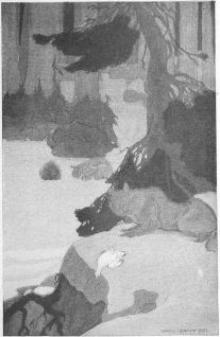 Love of Life
Love of Life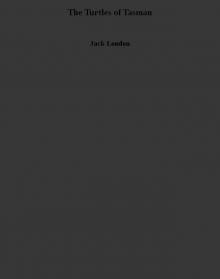 The Turtles of Tasman
The Turtles of Tasman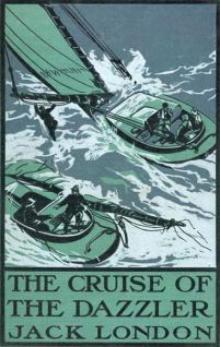 The Cruise of The Dazzler
The Cruise of The Dazzler The Heathen
The Heathen The Scab
The Scab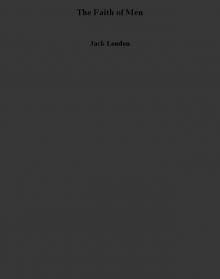 The Faith of Men
The Faith of Men Adventure
Adventure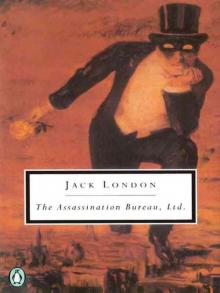 The Assassination Bureau, Ltd.
The Assassination Bureau, Ltd.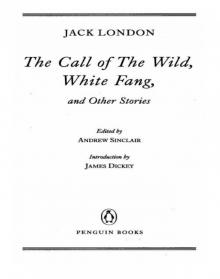 The Call of the Wild, White Fang, and Other Stories
The Call of the Wild, White Fang, and Other Stories The Call of the Wild and Selected Stories
The Call of the Wild and Selected Stories Jerry of the Islands
Jerry of the Islands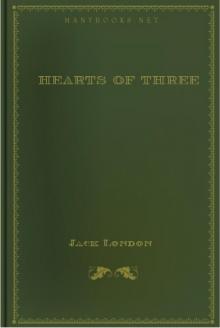 Hearts of Three
Hearts of Three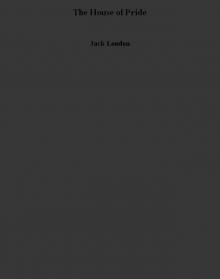 The House of Pride
The House of Pride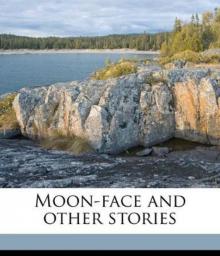 Moon-Face and Other Stories
Moon-Face and Other Stories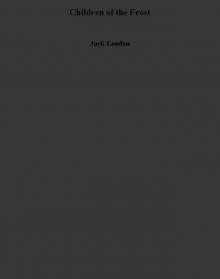 Children of the Frost
Children of the Frost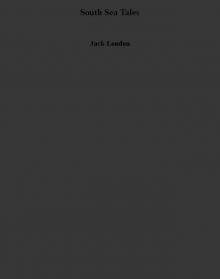 South Sea Tales
South Sea Tales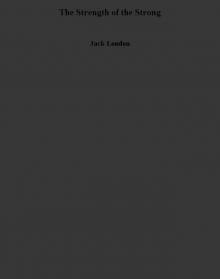 The Strength of the Strong
The Strength of the Strong The Jacket (The Star-Rover)
The Jacket (The Star-Rover)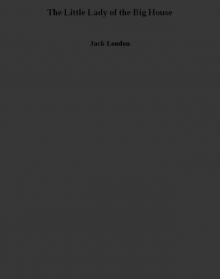 The Little Lady of the Big House
The Little Lady of the Big House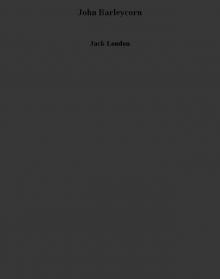 John Barleycorn
John Barleycorn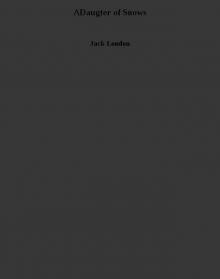 ADaugter of Snows
ADaugter of Snows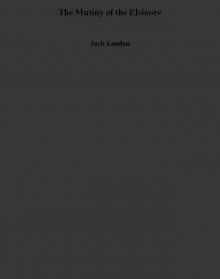 The Mutiny of the Elsinore
The Mutiny of the Elsinore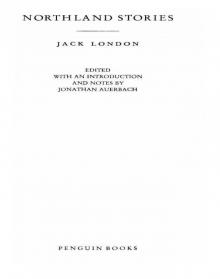 Northland Stories
Northland Stories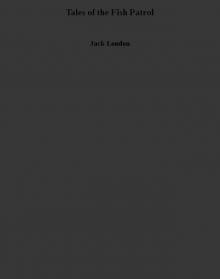 Tales of the Fish Patrol
Tales of the Fish Patrol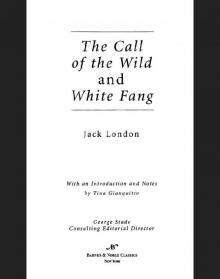 Call of the Wild and White Fang (Barnes & Noble Classics Series)
Call of the Wild and White Fang (Barnes & Noble Classics Series)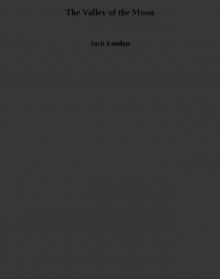 The Valley of the Moon
The Valley of the Moon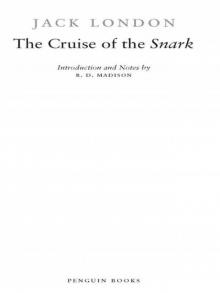 The Cruise of the Snark
The Cruise of the Snark The Game
The Game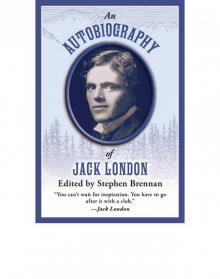 An Autobiography of Jack London
An Autobiography of Jack London